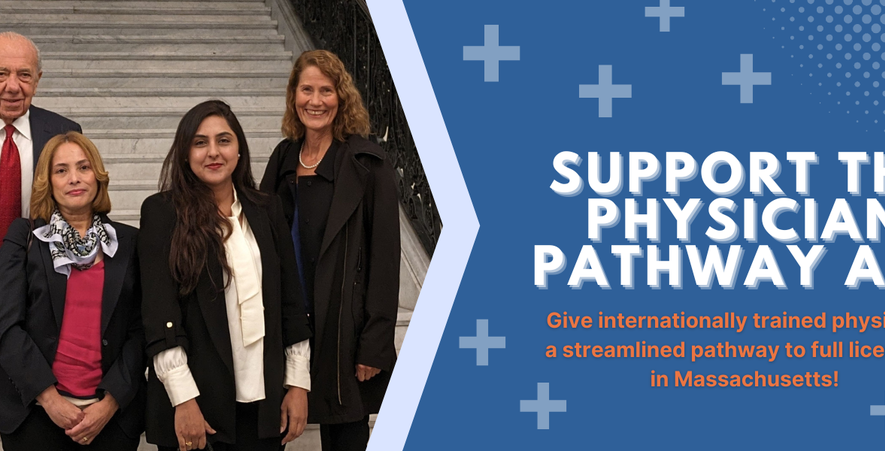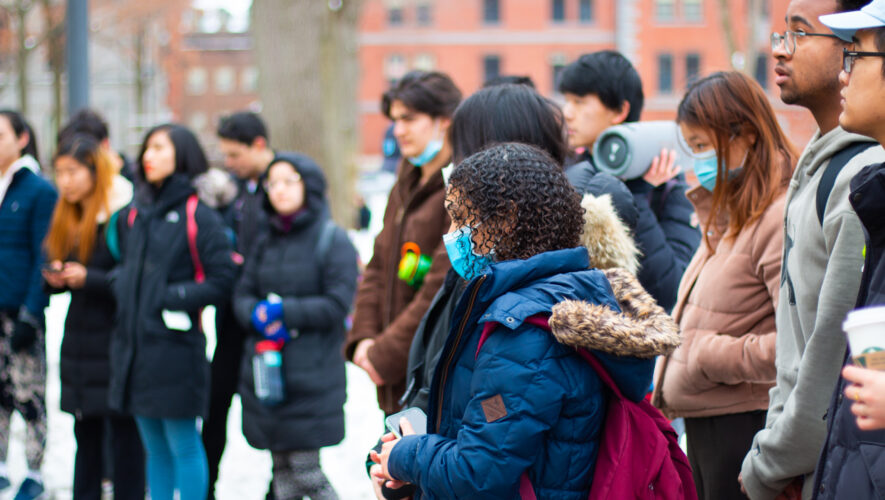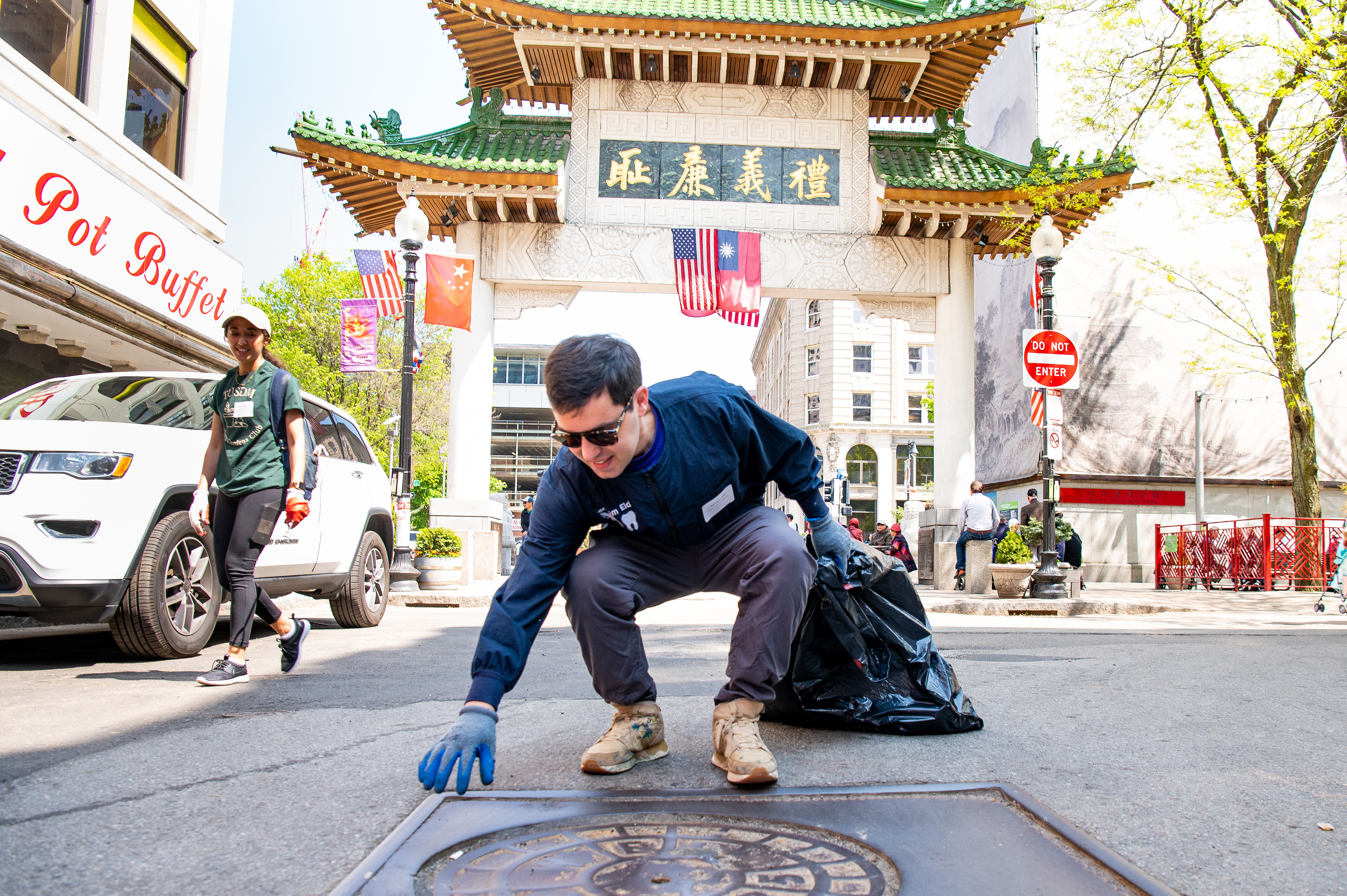On January 11, Massachusetts General Hospital had 103 patients boarding in its Emergency Department, meaning that 103 patients in the ED that day were sick enough to be admitted to the hospital yet have to remain in the ED as there are no available hospital beds. January 11 is marked on the calendar as one of the most crowded days the hospital has experienced in its two centuries of service and caring for Boston and surrounding communities. Massachusetts General Hospital, in almost four years after the start of the COVID pandemic, continues to struggle daily with unprecedented overcrowding especially in the Emergency Department. Similarly, many hospitals across the Commonwealth of Massachusetts are facing capacity constraints even today. This burden on emergency departments might be due to the extremely long wait times for primary care appointments as well as the primary care physician shortages, forcing many people to go to urgent care or EDs for things that would be better dealt with in primary care offices. According to a study done by physician recruiters Merritt Hawkins & Associates, the current average wait times for primary care appointments in Boston range from 40 to 136 days. A person looking to get his/her/their physical examination for this year done might probably only be able to schedule for an appointment in May 2025.
According to the Bureau of Health Workforce, in 2021, there were approximately 268,297 primary care physicians actively working which represent 28.2% of total active physicians of 949,658 in the US. In 2019, there were a total of 228,936 primary care physicians out of a total of 730,026 physicians, which amounts to approximately 31.4% of the total physicians according to data from Robert Graham Center. Between 2016 and 2021, the number of primary care physicians increased by about 3.6% while the number of physicians of other specialties had an increase of about 8.7%. Zooming in on Massachusetts, in 2018, of the total active physicians of 31,025, there were 9,267 primary care physicians, amounting to approximately 29.8% of total active physicians. There has been a shortage of primary care physicians and an aging primary care workforce in recent years. There have been more primary care doctors leaving the profession because they have retired and relatively older physicians are also choosing to retire earlier than expected mostly due to the stresses of the job. Primary care doctors get paid less than specialists yet have to know a lot about a lot, more than a specialist. The pandemic has for sure added to the stress of being a doctor. Furthermore, doctors in the US tend to get too much paperwork.
The physician shortage issue has been extremely severe in rural and underserved communities. According to the Massachusetts Immigrant and Refugee Coalition, at least 500,000 people in Massachusetts, especially in western and southeastern Massachusetts, lack sufficient access to primary care, dental care, and mental health services. While Massachusetts has one of the highest physician-to-patient ratios in the country of approximately 44.2%, nearly 40% of the active physicians practice in Suffolk county with a population estimate of 771,245 as of 2021 which holds merely 11.04% of Massachusetts population (estimated to be 6.985 million as of 2021). Adding on to the data mentioned above that about 29.8% of total active physicians in Massachusetts are primary care physicians, the acute physician shortages in these areas should be addressed immediately.
It is worth noting that according to the Migration Policy Institute’s estimate based on their 2017 data, Massachusetts has around 3,000 foreign-educated immigrants whose health care-related undergraduate degrees are not being fully utilized. The shortage of doctors and nurses could have been filled by these foreign-trained physicians. Nevertheless, internationally trained physicians, dentists, nurses, and practitioners in other health professions looking to get licensed in Massachusetts face numerous challenges. Foreign-trained physicians have to pass all three steps of the USMLE within a seven-year time limit. Foreign-trained physicians, regardless of their numbers of years of practice experience outside the US, have to complete a three-year US residency. Meanwhile, only 2 years of US residency is required for US-trained doctors. What’s worse is that residencies are competitive and many programs only consider recent – within the prior 3 to 5 years – medical school graduates. Simultaneously, residencies are low paid and require grueling hours. Furthermore, internationally-trained physicians and nurses have to get their credentials evaluated only by CGFNS which can take up to a year to complete the credential review. In addition, foreign-trained nurses are required to take an English proficiency test. What’s more is that people have to take the proficiency test and the credential evaluation again even if they have already passed the test or completed the evaluation in another state. Summing up, the licensing process can be extremely costly and time-consuming for foreign-trained medical professionals, many of which are refugees and asylum seekers who would be unsafe returning to their home countries yet cannot afford to risk and go through the licensing process.
This licensing process turned down many foreign-trained medical professionals. According to the Special Commission on Foreign-Trained Medical Professionals established in 2022, nearly 25% of internationally trained nurses are either unemployed or working in lower-skilled jobs, similar for approximately 13% of all immigrants to Massachusetts with health care-related degrees from outside the US. Many of these medical professionals choose to work in hospitals as technicians or other lower-skilled jobs because they failed to get a residency or in order to get a job that will at least pay them a salary immediately. Nevertheless, these medical professionals are fully trained, qualified, and experienced and their expertise could have been mobilized. Immigrants often seek out doctors who speak their languages, know their cultures, and understand their backgrounds. Having these internationally-trained medical professionals licensed can not only lighten the burden on the nation’s healthcare system but can also create a relatively more comfortable environment for immigrants in this country. Some states have either removed the residency requirements or have offered programs that fund some of these foreign-trained medical professionals.
Tennessee became the first state in the country to remove the redundant residency requirements, permitting international medical graduates to bypass the requirements and obtain temporary medical licenses, which will take effect on July 1, 2024. Minnesota is offering a 9-month program that will prepare international medical graduates for residencies and will fund 2 to 3 residencies each year. Massachusetts’ Special Commission on Foreign-Trained Medical Professionals proposed in a report ways to eliminate redundant requirements and proposed recommendations for long term administrative and legislative reforms including developing a pathway to full licensure for physicians and dentists previously authorized to practice medicine outside the US, establishing state-supported program that facilitates access to residencies such as that in Minnesota, and creating a revolving loan program that would provide interest-free loans to help defray the expenses that accompany the licensure process and related costs.
Massachusetts state legislature is currently pushing for the Physician Pathway Act to be passed which will create an efficient pathway as proposed by the special commission to full licensure for qualified internationally-trained physicians. One person who is one of the active voices behind the Physician Pathway Act and a member of the special commission is Dr. Deeb Salem, MD, academic cardiologist and former Physician-in-Chief of Tufts Medical Center. Dr. Salem recalled meeting an older pediatrician, as a medical student at Boston University on pediatric rotation, from Cuba who had left Cuba with no money and had to end up sweeping floors in the hospital because he could not find work due to the onerous licensing process. Dr. Salem continued to recall that sometimes he and other fellow students would go to the old Cuban physician and ask medical questions regarding the treatment of the patient.
Many foreign-trained medical professionals face similar obstacles like the Cuban pediatrician where they are fully qualified yet need a salary and cannot go through the whole licensing process. This Physician Pathway Act will first issue qualified internationally-trained physicians like those just mentioned a renewable one-year limited license to practice medicine under mentorship of a federally qualified health facility that serves an area with a physician shortage where the physicians would have their skills evaluated. Subsequently, physicians will be issued a renewable two-year restricted license for them to practice in a shortage area or specially designated by the Board of Registration in Medicine. Then, physicians will be eligible for a full unrestricted license. In general, the act is aiming to have the internationally-trained physicians get additional training while getting paid to support their family and furthermore to support the underserved communities to address the physician shortages.
Up until this point, this Physician Pathway Act received a favorable report from the Joint Committee on Public Health and was just included in an economic development bill filed last week.



